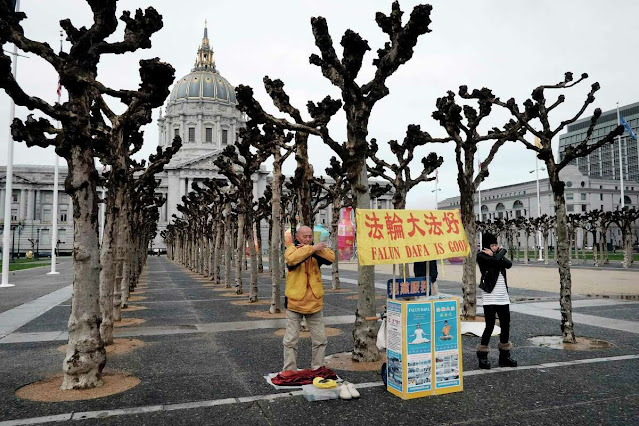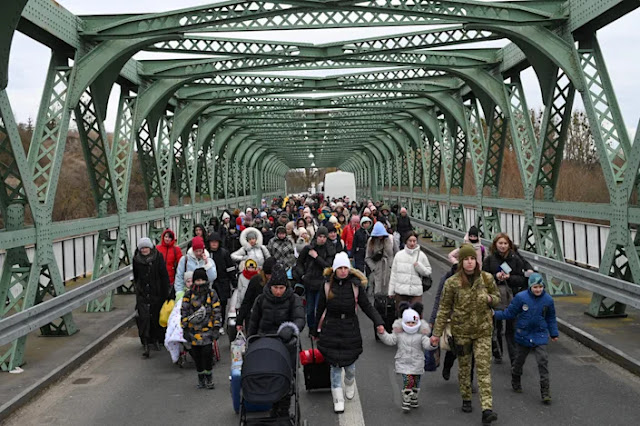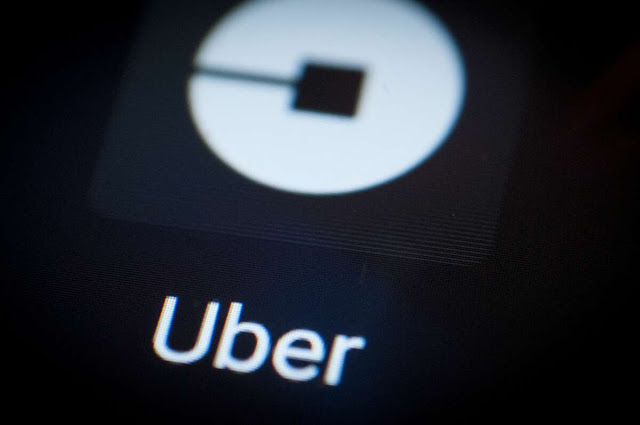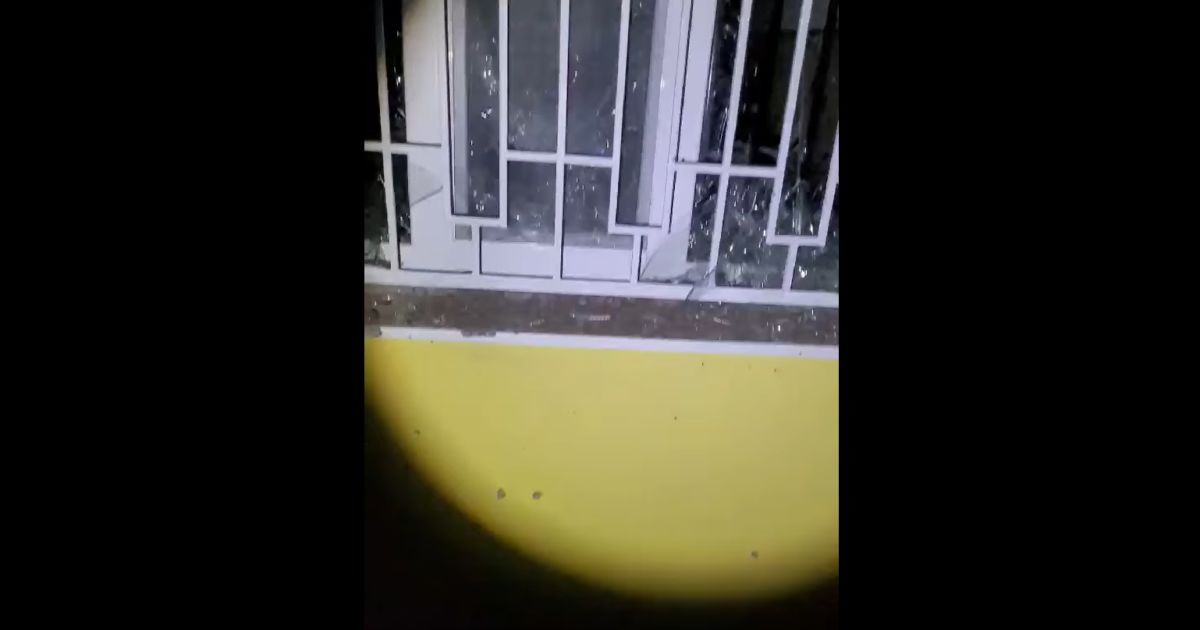LVIV, Ukraine — Ukrainian officials accused Russia damaging a cancer hospital and several residential buildings in the southern city of Mykolaiv with shelling from heavy artillery.
The hospital’s head doctor, Maksim Beznosenko, said several hundred patients were in the hospital during the attack but that no one was killed. The assault damaged the building and blew out windows.
Russian forces have stepped up their attacks on Mykolaiv, located 470 kilometers (292 miles) south of Kyiv, in an attempt to encircle the city.
Ukrainian and Western officials earlier accused Russia of shelling a maternity hospital in the southern city of Mariupol on Wednesday. Three people died in that attack.
___
LVIV, Ukraine — Ukraine’s President Volodymyr Zelenskyy accused Russia on Friday of kidnapping the mayor of the city of Melitopol, equating it to the actions of “ISIS terrorists.”
“They have transitioned into a new stage of terror, in which they try to physically liquidate representatives of Ukraine’s lawful local authorities,” Zelenskyy said in a video address Friday evening.
Kirill Timoshenko, the deputy head of Ukraine’s presidential office, posted a video on the social media site Telegram which he said showed a group of armed men carrying the mayor, Ivan Fedorov, across a square.
Russian forces captured the southern port city of Melitopol, with a population of 150,000, on Feb. 26.
The prosecutor’s office of the Luhansk People’s Republic, a Moscow-backed rebel region in eastern Ukraine, said on its website that there was a criminal case against Fedorov. The prosecutor’s office accused Fedorov of “terrorist activities” and of financing the nationalist militia Right Sector to “commit terrorist crimes against Donbass civilians.”
The office said it was looking for Fedorov and called for anyone with information about his whereabouts to contact them.
___
SAVANNAH, Ga. — U.S. soldiers are continuing to deploy to Europe, joining thousands already sent overseas to support NATO allies amid Russia’s invasion of Ukraine.
About 130 soldiers from the 87th Division Sustainment Support Battalion, 3rd Division Sustainment Brigade gathered Friday at Hunter Airfield in Savannah, Georgia and departed on a chartered flight.
The soldiers are in addition to the estimated 3,800 soldiers from the Army’s 3rd Infantry Division who deployed recently from nearby Fort Stewart.
A division commander said that soldiers are being told to prepare for about six months overseas. The Pentagon has ordered roughly 12,000 total service members from various U.S. bases to Europe.
The soldiers’ mission is to train alongside military units of NATO allies in a display of force aimed at deterring further aggression by Russia. The Pentagon has stressed U.S. forces are not being deployed to fight in Ukraine.
___
LVIV, Ukraine — Ukrainian authorities have warned of a humanitarian catastrophe in the port city of Mariupol, which has been encircled by Russian forces and cut off from deliveries of food and medicine.
Mariupol officials said Friday that 1,582 people had been killed in the 12 days since the siege began.
“There is a humanitarian catastrophe in the city and the dead aren’t even being buried,” Mariupol’s mayor’s office said in a statement Friday, calling for Russian forces to lift the siege.
Ukrainian authorities have accused Russian forces of shelling evacuation routes and preventing civilians from escaping the city of 430,000 people.
___
BERLIN — Ukraine told the International Atomic Energy Agency on Friday that technicians have started repairing damaged power lines at the decommissioned Chernobyl power plant in an effort to restore power supplies, the U.N. nuclear agency said.
On Wednesday, Ukrainian authorities said that Chernobyl, the site of the 1986 nuclear disaster, was knocked off the power grid, with emergency generators supplying backup power.
The Ukrainian nuclear regulator said Friday that workers repaired one section of the lines, but there still appears to be damage in other places, the IAEA said. Repair efforts would continue despite “the difficult situation” outside the plant, which was taken by Russian forces early in the invasion, it said.
The Ukrainian regulator said additional fuel was delivered for generators, but it remains important to fix the power lines as soon as possible. The IAEA reiterated that the disconnection “will not have a critical impact on essential safety functions at the site.”
The Vienna-based U.N. nuclear watchdog said that it still isn’t receiving data from monitoring systems installed to monitor nuclear material and activities at Chernobyl, but transmission from the Zaporizhzhia plant — Ukraine’s biggest, which Russian forces seized last week — has been restored after being lost earlier this week.
____
PARIS — Interpol is restricting Russia’s ability to input information directly into the global police organization’s vast network, deciding that communications must first be checked by the general secretariat in Lyon, France.
The French Foreign Ministry said Friday that the beefed-up surveillance measures follow “multiple suspicions of attempted fraudulent use” of the Interpol system in recent days, but it did not elaborate.
Interpol stressed in a statement Thursday that it is maintaining its pledge of neutrality amid war between two of its members, triggered by Russia’s invasion of Ukraine. But it said that “heightened supervision and monitoring measures” of Moscow’s National Central Bureau were needed “to prevent any potential misuse of Interpol’s channels” like targeting individuals in or outside Ukraine.
The ministry noted that Interpol’s decision has multiple impacts from communications, to putting out so-called “red notices” for criminals on the loose or even feeding data on lost or stolen documents — all of which must now get compliance checks from Interpol headquarters.
Interpol, which has 195 members, said it had received calls to suspend Russia from the network, along with calls by law enforcement leaders looking for continued cooperation to better fight crime.
“In addition to the tragic loss of life, conflicts invariably lead to an increase in crime,” as organized crime groups try to exploit desperation, Interpol said. Risks include human trafficking, weapons smuggling and trafficking in illicit goods and medicines.
____
BOSTON — YouTube announced Friday that it has begun blocking access globally to channels associated with Russian state-funded media. It had previously blocked them — specifically RT and Sputnik — across Europe.
YouTube, which is owned by Google, announced the move in a Twitter post and said that while the change is effective immediately, “we expect our systems to take time to ramp up.”
YouTube also said it was now removing content about Russia’s invasion of Ukraine that violates its policy that “minimizes or trivializes well-documented violent events.” The Kremlin refers to the invasion as a “special military operation” and not a war.
YouTube previously paused YouTube ads in Russia. Now, it is extending that to all the ways it makes money on the platform in Russia.
Ukraine’s digital transformation minister, Mykhailo Fedorov, predicted in his Telegram channel that the Kremlin would soon move to block YouTube in Russia. “It’s a question of time.”
____
ANTALYA, Turkey— With the Ukrainian refugee crisis, European countries that had previously been reluctant to share the burden for refugees have found themselves seeking solidarity and burden-sharing, United Nations High Commissioner for Refugees Filippo Grandi said Friday.
Grandi spoke at a diplomacy forum near the Turkish Mediterranean city of Antalya as the number of refugees fleeing Ukraine passed 2.5 million.
“European countries, including countries that have been rather hesitant in the past to any notion that you should share that responsibility, now find themselves … in the situation to hold hundreds of thousands,” Grandi said. “And what do they do? They ask for that international solidarity and sharing, which means financial assistance.”
Grandi said: “I think that we need to capitalize on what is happening now to restate this notion, that if refugees move, everybody should share responsibility.
____
WARSAW, Poland – Ukraine’s president and NATO chief remotely joined Poland’s leaders and lawmakers Friday for a session marking Poland’s 23 years in the defensive military alliance at a time when neighboring Ukraine is fighting Russian invasion.
In a video link to the gathering in Poland’s parliament, Ukraine President Volodymyr Zelenskyy thanked Poland for supporting his nation’s struggle against the aggressor and also for opening its borders to refugees fleeing the war. Over 2.3 million people have fled Ukraine since the Feb. 24 invasion. Over 1.5 million of them have made their way to Poland.
In a veiled way Zelenskyy said he hopes Ukraine will eventually receive Soviet-designed MiG-29 fighter jets from Poland. The delivery implications of the jets recently led to an apparent misunderstanding between Warsaw and the U.S. administration.
“I am grateful for the efforts you are taking to allow us to protect Ukraine’s skies,” Zelenskyy said. “I trust that we will be able to arrive at a result that is very important to us.”
NATO Secretary-General Jens Stoltenberg said Poland is safer for being a member of the alliance, and stressed the task is now to make sure the armed conflict does not spread but comes to an end.
Poland’s President Andrzej Duda condemned Russia’s bombings of Ukraine’s cities and housing areas as “war crimes.”
____
UNITED NATIONS — The United Nations human rights office has received “credible reports” that Russian forces are using cluster munitions in Ukraine, including in populated areas which is prohibited under international humanitarian law, the U.N. political chief said Friday.
Undersecretary-General Rosemary DiCarlo told a U.N. Security Council meeting that residential areas and civilian infrastructure are being shelled in Mariupol, Kharkiv, Sumy and Chernihiv and “the utter devastation being visited on these cities is horrific.”
Most of the civilian casualties recorded by the U.N. human rights office — 564 killed and 982 injured as of Thursday — “have been caused by explosive weapons with a wide impact area, including heavy artillery and multi-launch rocket systems, and missile and air strikes,” she said.
“Indiscriminate attacks, including those using cluster munitions, which are of a nature to strike military objectives and civilians or civilian objects without distinction, are prohibited under international humanitarian law,” DiCarlo said. “Directing attacks against civilian and civilian objects, as well as so-called area bombardment in towns and villages, are also prohibited under international law and may amount to war crimes.”
As of Thursday the U.N. World Health Organization has verified 26 attacks on health facilities, health workers and ambulances, including the bombing of the Mariupol maternity hospital, which caused 12 deaths and 34 injuries, DiCarlo said.
All alleged violations of international humanitarian law must be investigated and those found responsible must be held accountable, she said.
DiCarlo stressed that “the need for negotiations to stop the war in Ukraine could not be more urgent.”
____
Footage recorded on the outskirts of Kyiv by Radio Free Europe on Wednesday shows Ukrainian soldiers with rifles and rocket-propelled grenade launchers slung over their shoulders traversing snow-dusted fields and woods and expressing disdain toward the Russians.
One unidentified soldier called their adversaries “orcs,” a reference to the monstrous and malevolent foot soldiers in the “Lord of the Rings” series.
Another soldier said they planned to kill all their enemies over the bombing of Mariupol.
“We’ll multiply them by zero,” the unidentified soldier said.
Gunfire and explosions erupt during the 3-minute, 30-second clip. At one point in the woods, shots split the air near the group, and soldiers drop to their stomachs in an instant and return fire. The assailants are not visible in the clip, but the crack-crack-crack from the gunfire exchange carries on for 15 seconds in one part of the clip.
____
The chief prosecutor of the International Criminal Court has opened an online portal to gather evidence of war crimes in Ukraine, as he renewed his call to combatants to abide by the laws of war.
Prosecutor Karim Khan said in a written statement Friday that he is “closely following the deeply troubling developments in hostilities.” There have been reports in recent days of Russian strikes on civilian infrastructure in Ukrainian towns and cities, including the deadly strike on a maternity hospital in Mariupol earlier this week.
Khan notes in a written statement that “if attacks are intentionally directed against the civilian population: that is a crime. If attacks are intentionally directed against civilian objects: that is a crime. I strongly urge parties to the conflict to avoid the use of heavy explosive weapons in populated areas.” He says there is no legal justification or excuse “for attacks which are indiscriminate, or which are disproportionate in their effects on the civilian population.”
Khan also said that two more of the global court’s member states, Japan and North Macedonia, have formally requested him to investigate in Ukraine, bringing the number of so-called state party referrals to 41.
The information will bolster evidence gathered by an investigative team Khan sent to the region last week to begin gathering evidence.
Neither Russia nor Ukraine is an ICC member state, but Kyiv has recognized the court’s jurisdiction, allowing Khan to investigate war crimes, crimes against humanity and genocide.
____
BELGRADE, Serbia — A flight from Belgrade to Moscow was reverted and evacuated following a bomb alert, Serbian police said Friday.
The Belgrade airport received an email saying that an explosive device has been planted on the Air Serbia flight to Moscow, police said in an email.
The plane was then turned back shortly after take-off, and is being checked by police, the statement said. No other details were immediately available.
Serbian media said there were more than 200 passengers and crew on the plane.
Air Serbia carrier is the only one in Europe that still flies to and from Russia as Serbia has refused to join Western sanctions against its traditional ally over Ukraine.
Air Serbia has increased the number of flights to Russia amid high demand.
____
ATHENS, Greece — The leader of Greece’s Orthodox Church has contacted the Orthodox Church of Ukraine to offer support in housing refugees fleeing the war-torn country.
Archbishop Ieronymos, who heads the Greek church, said in a statement on Friday that he had telephoned Metropolitan Bishop Epiphanius of Kyiv, the Ukrainian Orthodox Church leader, and promised “full support” for Ukraine, adding that parishes across Greece had been sent a request to provide assistance.
Only several thousand refugees from Ukraine have traveled to Greece so far — out of the 2.5 million that have fled the country — but Greek authorities expect that number to increase in the coming weeks.
The Greek church has recognized the independence of the Orthodox Church of Ukraine despite strong opposition from the Russian Orthodox Church.
____
ISTANBUL — Turkey on Friday evacuated its embassy in Kyiv, a Foreign Ministry spokesman said.
Tanju Bilgic said staff at the mission would move to Chernivtsi near the Romanian border for security reasons, state-run Anadolu news agency reported.
The order to leave Kyiv came as Russian forces fanned out around the city and appeared likely to step up artillery and rocket attacks. Many countries ordered diplomatic staff to leave Kyiv before Russia launched its invasion on Feb. 24.
Turkey has close ties to both Ukraine and Russia and has been seeking to mediate between its warring Black Sea neighbors.
____
VERSAILLES, France — German Chancellor Olaf Scholz is underlining the importance of keeping in contact with Russian President Vladimir Putin, but is stressing that “we will not make decisions for the Ukrainians.”
Scholz and French President Emmanuel Macron, who has spoken frequently with the Russian leader, together spoke to Putin on Thursday. After a European Union summit on Friday, Scholz said “it is absolutely necessary that we do not let the thread of talks break.”
The Elysee said Friday that Macron and Scholz would speak again with Putin on Saturday.
Scholz stressed that he and Macron are consulting closely among themselves and with the Ukrainian leadership — and that a cease-fire is the top priority. Scholz said it’s good that there are talks, but they shouldn’t just drag on while “weapons every day destroy people’s lives, buildings, infrastructure and dreams.”
The chancellor said that there is “one very clear principle: we will not make decisions for the Ukrainians. They must know themselves what from their point of view is the right thing for their country in this threatening situation.”
____
BELGRADE, Serbia — Germany’s foreign minister has urged Serbia, which has not imposed sanctions on traditional ally Russia over the war in Ukraine, to align policies with the European Union if it wants to join the bloc.
Annalena Baerbock said Friday in Serbia’s capital Belgrade that “we all must have a clear position” over the Russian invasion of Ukraine.
Russian President Vladimir Putin, Baerbock said, launched a “shameless campaign of destruction” that is targeting “maternity wards, schools, (people’s) homes.”
While Serbia has criticized the attack on Ukraine and voted in the United Nations for the condemnation of the attack, Belgrade has refrained from joining Western sanctions against Moscow.
Historically considered a friendly nation, Russia remains popular among the Serbs, particularly because of Moscow’s support for Serbia’s opposition to the Western-backed independence of the breakaway former Kosovo province.
Baerbock praised Serbia’s U.N. vote and the offer to host Ukrainian refugees. But she added that “joining the European Union means readiness to align with the positions of the union.”
Serbia’s President Aleksandar Vucic said that “Serbia has a very determined and clear position” and has done “nothing that would hurt Ukraine.”
____
MOSCOW — Russia’s communications and media regulator says it's restricting national access to Instagram because the platform is spreading “calls to commit violent acts against Russian citizens, including military personnel.”
The regulator, called Roskomnadzor, took the step Friday as Russia presses ahead with its invasion of Ukraine.
Earlier on Friday, Meta, the company that owns Facebook, Instagram and WhatsApp, said in a statement tweeted by its spokesman Andy Stone that it had “made allowances for forms of political expression that would normally violate our rules on violent speech, such as ‘death to the Russian invaders’.”
The statement stressed that the company “still won’t allow credible calls for violence against Russian civilians.”
___
PRAGUE — Prague City Hall has started readying temporary accommodation for a surge in refugees from Ukraine after the Czech capital ran out of housing options for them.
The government estimates that up to 200,000 refugees — 55% of them children — have arrived in the Czech Republic, a European Union and NATO member that doesn’t border Ukraine. About 25% of the refugees entering the country have gone to Prague.
Prague Mayor Zdenek Hrib has asked the heads of 22 city districts to prepare at least 100 beds each in school gyms and also provide food for the refugees there.
Hrib compared the current situation in Prague to Germany facing the waves of refugees during a European migrant crisis in 2015-16.
“The difference is that Germany had months to react, we have just days,” Hrib said. “The demand for accommodation in Prague is enormous and by far surpasses what we can offer.”
___
ANTALYA, Turkey — Turkish President Recep Tayyip Erdogan has suggested that the war in Ukraine could have been avoided had the world spoken out against Russia’s 2014 annexation of Crimea.
“Would we have faced such a picture if the West, the whole world, had raised their voices?” Erdogan asked. “Those who remained silent in the face of Crimea’s invasion are now saying some things.”
Erdogan spoke Friday at a diplomacy forum near the Turkish Mediterranean city of Antalya, where the Russian Foreign Minister Sergey Lavrov and Ukraine’s Foreign Minister Dmytro Kuleba met a day earlier for talks facilitated by Turkey’s foreign minister.
Erdogan said Turkey would continue its efforts for peace.
___
COPENHAGEN, Denmark — Finnish President Sauli Niinistö spoke in a phone call Friday with Russian President Vladimir Putin about the war in Ukraine.
Niinistö's office said in a statement that he informed Putin that he, earlier in the day, had a phone call with Ukrainian President Volodymyr Zelenskyy, and that Zelenskyy was prepared to talk directly with Putin.
The statement said Niinistö called for an immediate ceasefire and the safe evacuation of civilians, but also spoke to Putin about the security of nuclear energy facilities in Ukraine.
Niinisto is one of the few Western leaders who has kept a regular dialogue with Putin ever since the Finnish leader took office in 2012.
___
BUDAPEST, Hungary — Hungary’s prime minister said Friday that sanctions imposed against Russia by the European Union would not involve a ban on imports of Russian oil and gas.
In a video on his social media channels following a meeting of EU leaders in Versailles, France, Viktor Orban said it was possible that the war in Ukraine “would drag on,” but that “the most important issue was settled in a way that was favorable to us.”
“There will be no sanctions covering oil and gas, which means that Hungary’s energy supply is guaranteed for the next period,” Orban said.
Orban, widely considered to be the Kremlin’s closest ally in the EU, has supported the bloc’s sanctions against Russia over its invasion of Ukraine, Hungary’s neighbor.
But he has remained firm in insisting that the energy sector be left out of sanctions, arguing that such a move would damage EU countries more than Russia.
Last year, Hungary extended by 15 years a natural gas contract with Russian state-owned energy company Gazprom, and has entered into a 12 billion-euro ($13.6 billion) Russian build-and-finance agreement to add two nuclear reactors to Hungary’s only nuclear power plant.
___
KYIV, Ukraine — Ukraine’s president says his country’s military forces have reached “a strategic turning point,” while Russia’s president says there are “certain positive developments” in talks between the warring countries.
Neither leader explained clearly what they meant, however.
Ukrainian President Volodymyr Zelenskyy said Friday: “It’s impossible to say how many days we will still need to free our land, but it is possible to say that we will do it because ... we have reached a strategic turning point.” He didn’t elaborate.
He said authorities are working on 12 humanitarian corridors and trying to ensure needy people receive food, medicine and basic goods.
He spoke on a video showing him outside the presidential administration in Kyiv, speaking in both Ukrainian and Russian about the 16th day of war.
Meanwhile, in Moscow Russian President Vladimir Putin said there have been positive developments in talks between the warring countries, but he didn’t offer any details about what those developments were.
Putin hosted Belarus President Alexander Lukashenko for talks on Friday and told him that negotiations with Ukraine “are now being held almost on a daily basis.”










![Russia has launched a criminal case against Instagram owner Meta, as Moscow fired back at the tech giant for allowing posts calling for violence against Russian forces [File: Kirill Kudryavtsev/ AFP] Russia has launched a criminal case against Instagram owner Meta, as Moscow fired back at the tech giant for allowing posts calling for violence against Russian forces [File: Kirill Kudryavtsev/ AFP]](https://blogger.googleusercontent.com/img/a/AVvXsEjN74TpbXwNQtdbJf_BOGMXlEiyBq-8XP6CcShL5ceapaAUwPlLvk5fTlJ4TfQJL3sXbvzpKZ7CmTc204dENb7vF9bhqDo0QmPVfDisQjpCTDIcmBmqKUkB1nbb0i8hs9eLr_uiFCrfE_lgGs3E0MLXUQSYqdUMwx_oiEQtmBKVqbq4JL6kn9QUlMCd=w640-h426)


